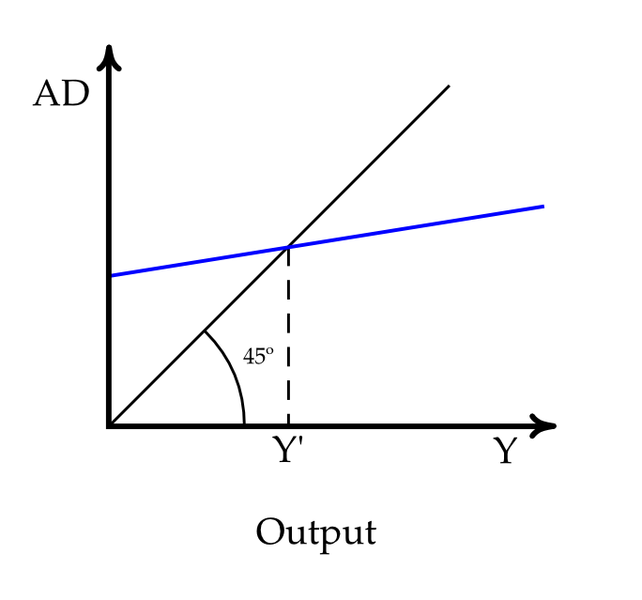
June 5th is the birthday of both John Maynard Keynes and Adam Smith. What an auspicious day to be an economist!
Keynes, a Depression-era macroeconomist, has come back into popular (popular for an economist) focus after this most recent economic crisis. His solution to depressed markets could be grossly simplified as fiscal expansion. If governments spend more, total output will increase.
In fact, looking at the Keynesian Cross model, even a modest increase in aggregate demand will lead to a much larger boost in output. The story is delightfully simple. Imagine today the government gives you 10 bucks to build a dam. You take that 10 bucks, save maybe 2 dollars, and spend the other 8 on Carls Jr. Carl then takes your 8, saves a dollar from it, and spends the other 7 buying more beef. The rancher saves a bit, spends the rest on fertilizer, and so on and so on. We see that from that initial 10 dollars, the money goes a long way in generating transactions.
Of course we learn this the first week of Intermediate Macroeconomics I. Week two, with its IS-LM and A Sad World models, shows us why this doesn't work and why we should all be good little monetarists. Still, enjoy your time in the sun, Mr. Keynes! June is your month!
Last thing I want to share, hip hop artist Slim Thug giving props to Sir John. Skip to 1:40 for the coolest moment macroeconomics will ever have.
| The Daily Show With Jon Stewart | Mon - Thurs 11p / 10c | |||
| Slim Thug's Music Video - Still a Boss | ||||
| ||||
